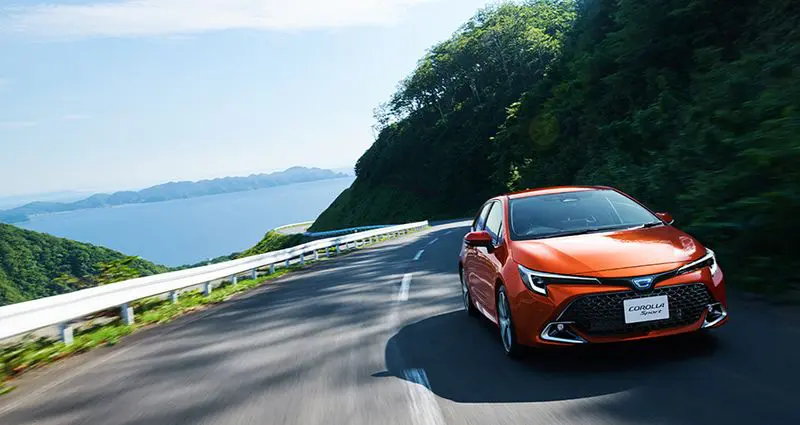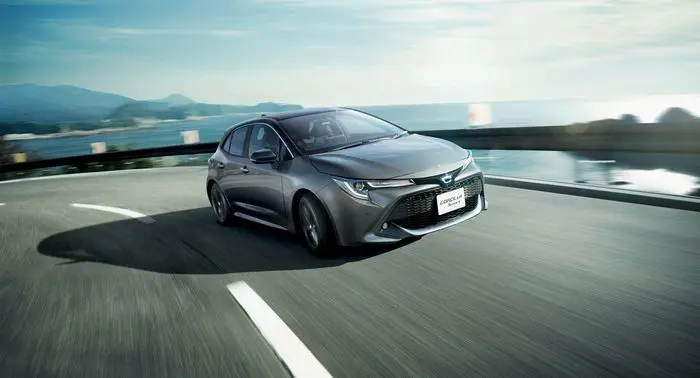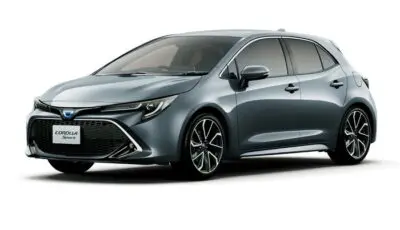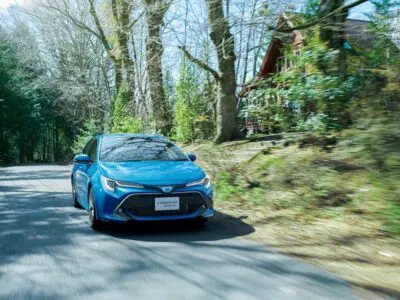
Toyota plans to fully redesign the Corolla Sport and release the 13th generation around 2026. The new Corolla Sport is expected to evolve even further, combining practicality, driving performance, and environmental friendliness at a high level. This new model will be equipped with the latest 1.5L inline 4-cylinder engine, and is expected to evolve even further. We will provide a thorough explanation of what kind of model it will be.
The current model was announced in August 2019 and underwent a full model change in September, which is expected to be the first major overhaul in about seven years. Furthermore, the overseas model is expected to undergo a full model change in the second half of 2025 first, and early introduction is being rushed in order to comply with stricter exhaust gas regulations scheduled for 2028 onwards.
About the new Toyota Corolla Sports full model change
The 13th generation Corolla series will be undergoing a full model change, with a bold change from Toyota’s common design language “Keen Look” that was used in the previous 12th generation model to the “Hammerhead Design,” giving the car a completely new exterior.
The new Corolla Sport is expected to have an even sportier appearance than the current model. In addition to a low center of gravity and wide stance, the sharp headlights and taillights will accentuate the sporty impression. The interior space is also expected to be larger and more comfortable. In particular, the legroom in the rear seats has been expanded, and it is designed to be comfortable even on long drives. The interior will also be evolved and will incorporate the latest technology.
The new Corolla Sport will also be built on the improved TNGA-C platform that is also used in the new Prius , which will improve the body rigidity and make the ride even more comfortable.
The latest safety technology will also be installed, and the latest version of the preventive safety package “Toyota Safety Sense” will be introduced . This will further strengthen functions such as collision damage mitigation braking, lane keep assist, and adaptive cruise control, and Toyota teammate “Advanced Park” and “Advanced Drive” will be installed to support safe driving of the driver. In addition, “Panoramic View Monitor” will be adopted in the higher grades.
The engine is a new 1.5L inline 4-cylinder engine with an eye on electrification, which achieves both improved combustion efficiency and high output. This allows for a high level of power performance and low fuel consumption, resulting in a significant improvement in fuel efficiency. In addition, a hybrid model is also available, which achieves even better fuel efficiency and reduces environmental impact by reducing CO2 emissions.
Toyota’s new Corolla Sport new design Hammerhead
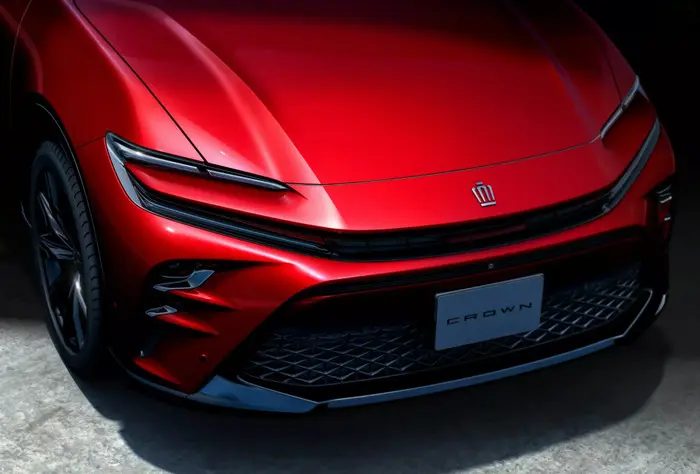
Crown Sports
The “Hammerhead” design, which began with the fifth-generation new Prius and bZ4X, was inspired by the hammerhead shark. With a face that resembles a shark, it quickly spread to new Toyota models. Since then, this design has been adopted one after another, such as the Crown Sport and Crown Estate, and has become an iconic Toyota design.
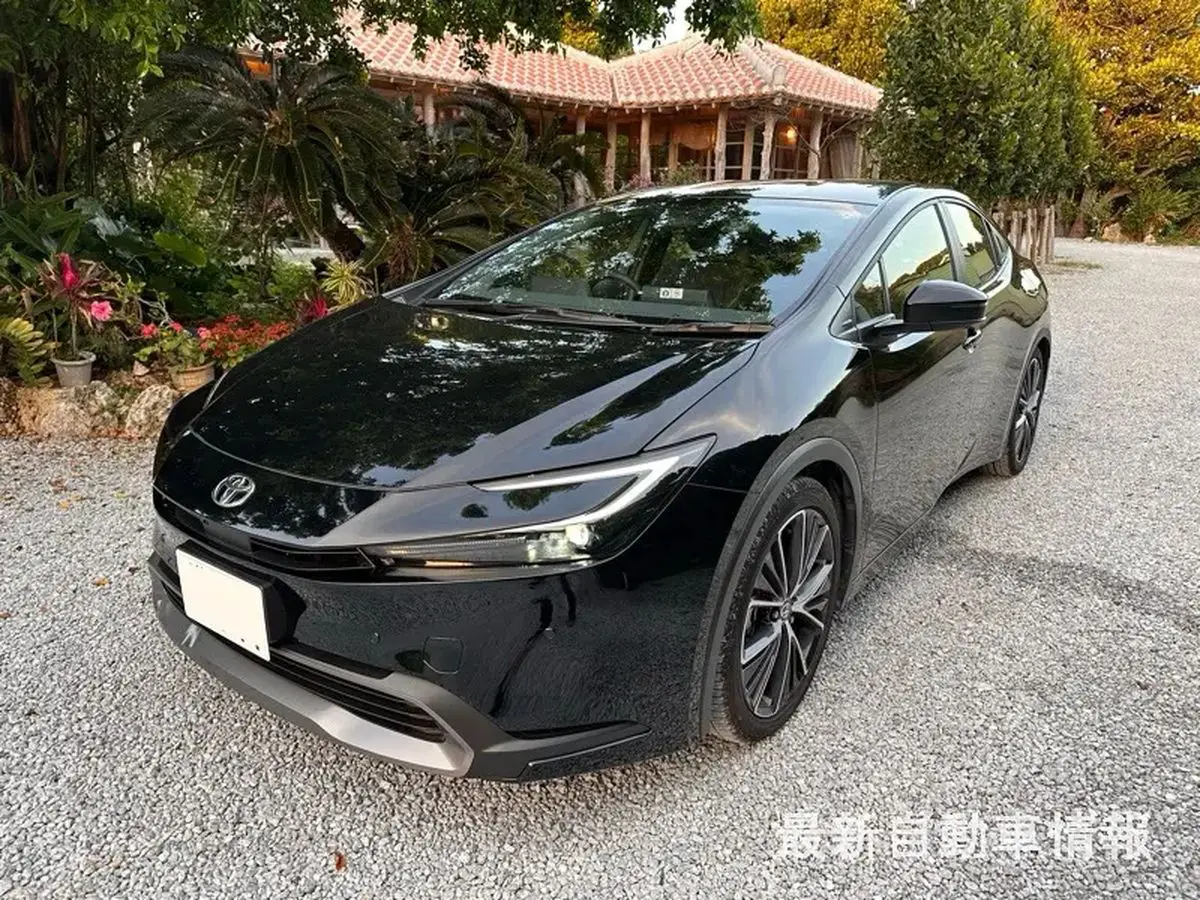
Prius
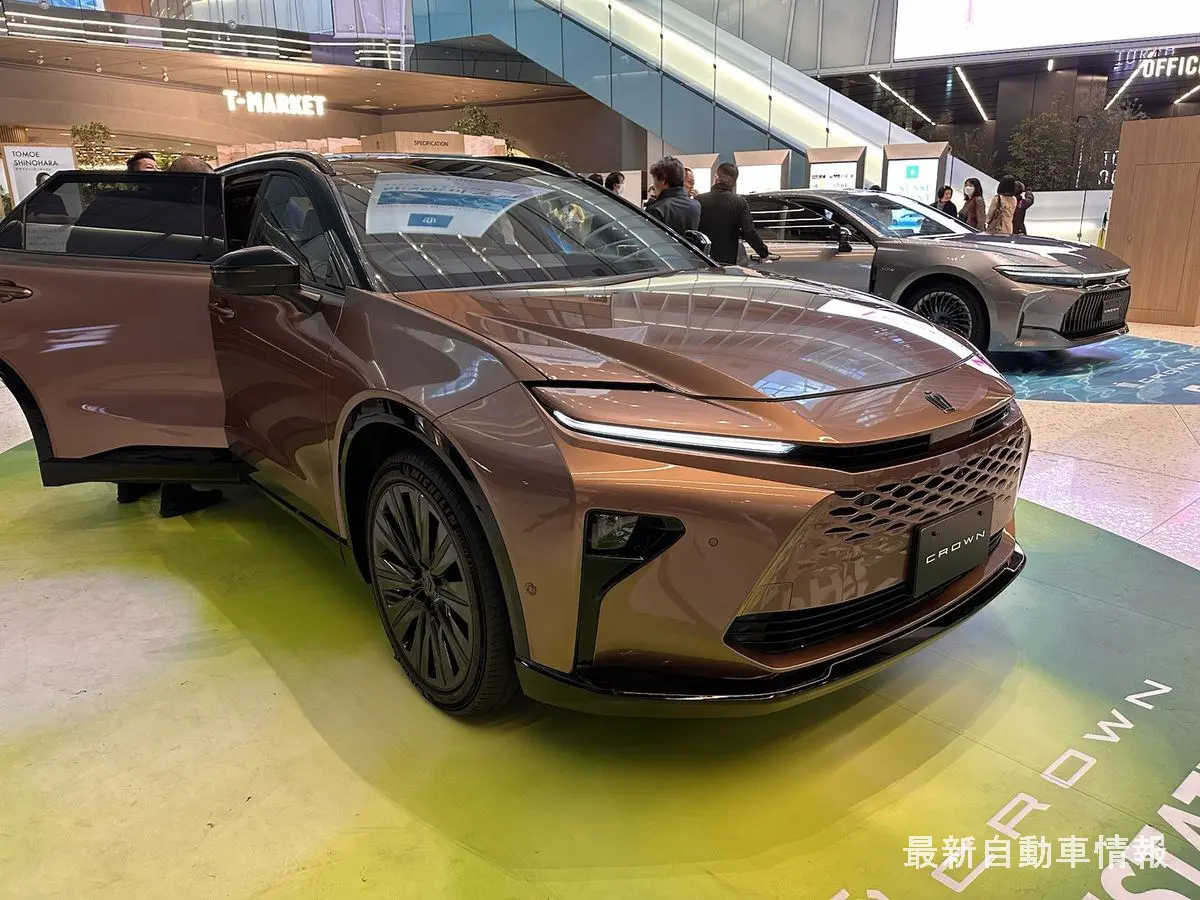
Crown Estate
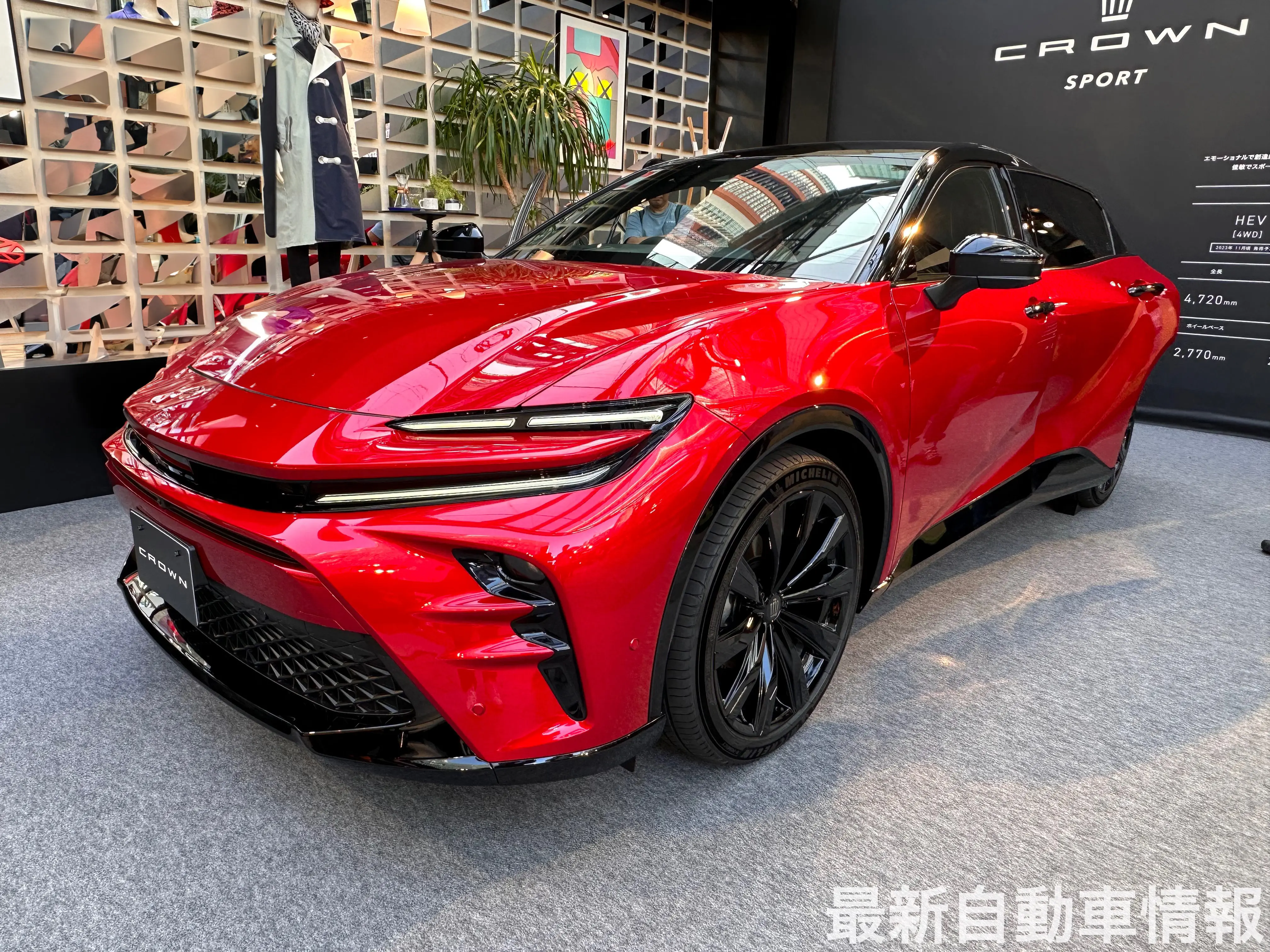
Crown Sports
Toyota’s new common design language concept
What kind of designs are unified by each manufacturer? For example, Lexus is characterized by its “spindle grille” and “spindle body”, Mazda has its “heartbeat design”, and BMW has its “kidney grille”. In this way, each manufacturer tends to unify their designs to a certain extent in order to establish their own company identity.
Toyota is no exception, and has recently adopted the “Hammerhead” design as a common design language. Toyota has also incorporated a design called the “Keen Look” into several of its car models for some time now. Representative examples include the “C-HR”, “Corolla Series”, and “Harrier”. With the full model change, these models have also evolved significantly from the “Keen Look” to the “Hammerhead” design.
New Corolla Sport Fully Redesigned Next-Generation Toyota Safety Sense
The next-generation “Toyota Safety Sense” will be standard on all vehicles. This system includes “Pre-Crash Safety” that can detect bicycles during the day and pedestrians at night, and “Lane Tracing Assist (LTA)” that assists steering to keep the car in its lane when “Radar Cruise Control” is activated.
The latest “Pre-crash Safety with Collision Avoidance Assist” has further enhanced functions. These include detection at intersections, acceleration suppression at low speeds, and steering avoidance assistance in emergency situations. With pedestrian detection, the system uses millimeter-wave radar and a camera to detect vehicles and pedestrians ahead, and provides collision avoidance assistance and damage mitigation through warnings, brake assist, and automatic braking. The automatic brake operates at speeds of 10 to 80 km/h for pedestrians, and appropriately slows down depending on the speed difference. It also operates at a wide speed range from 10 km/h to maximum speed for vehicles, and can decelerate at high speeds even for stopped vehicles. In addition, functions such as “acceleration suppression at low speeds,” “detection of oncoming vehicles and pedestrians when turning right at an intersection,” and “steering avoidance assistance in emergency situations” have been added.
- The low-speed acceleration suppression function detects pedestrians, cyclists, and vehicles directly in front of the vehicle when traveling at low speeds and suppresses acceleration.
- It can also detect oncoming vehicles going straight when turning right at an intersection, as well as pedestrians crossing from the opposite direction when turning right or left.
- An emergency steering avoidance assistance function that assists steering when the driver makes an evasive maneuver in an emergency.
The Road Sign Assist (RSA) detection range has been expanded to include reading major roadside traffic signs such as “speed limit,” “stop,” “no entry,” and “no departure,” and displaying them on the instrument panel.
Lane Departure Alert (LDA) The LDA camera recognizes the white and yellow lines of the driving lane, and if it detects the possibility of lane departure, it warns the driver with a buzzer and a visual indication, helping to avoid collisions caused by lane departure.
Leading vehicle departure notification function If you are stopped behind the vehicle ahead at a traffic light or in a traffic jam and do not notice the vehicle ahead starting to move, a buzzer will sound and the display will show a notification.
The Automatic High Beam (AHB) camera detects the headlights of oncoming vehicles or the taillights of the vehicle ahead and automatically switches between high and low beams, reducing glare for drivers of other vehicles and helping to ensure forward visibility at night.
Radar Cruise Control: A millimeter wave radar is used to detect the distance between the vehicle and the vehicle ahead, and radar cruise control is adopted, which allows the vehicle to follow the vehicle ahead while maintaining a certain distance by adjusting the speed to match the speed of the vehicle ahead within the set vehicle speed. The millimeter wave radar and camera detect lane changes of the vehicle ahead, realizing smoother acceleration and deceleration control. Toyota aims for “zero traffic fatalities and injuries,” the ultimate wish of the mobility society, and is researching and developing various safety equipment and systems based on the “Integrated Safety Concept.” Toyota is also working to “develop safer vehicles and technologies,” and is strengthening a wide range of efforts for traffic safety through “participation in traffic environment improvement” and “traffic safety awareness activities for people.”
Lane Tracing Assist (LTA) Lane Tracing Assist [LTA], featured on the new Lexus LS series, is being adopted for the first time in the next-generation Toyota Safety Sense P. When driving on a highway or expressway, turning on the Lane Tracing Assist [LTA] switch while the radar cruise control is activated provides steering assistance necessary to keep the vehicle in its lane.
Advanced Safety
Intelligent Clearance Sonar (Parking Support Brake Stationary) A system that helps to mitigate collisions caused by accidentally stepping on the accelerator or pressing it too hard, and helps to reduce damage. The “Clearance Sonar” displays and sounds a buzzer when approaching stationary objects while driving, such as when parking, and now has an added function to mitigate contact with stationary objects. The sonar can also detect glass at convenience stores and other places. When a stationary object is detected in the direction of travel while driving at low speeds (15km/h or less), the hybrid system output is suppressed, and if the distance becomes even closer, the brakes are automatically applied.
Emergency brake signal (hazard lights flashing) When you apply the brakes suddenly, the hazard lights flash automatically.
If the driver continues to make no operations while the Lane Tracing Assist (LTA) system is in control , it will prompt the driver to take action with sound, visual and gradual deceleration warnings, and will alert people outside the vehicle with hazard lights and a horn while decelerating and stopping within the vehicle’s lane, helping to avoid accidents involving damage to the vehicle or other parties involved and reducing the damage caused by such accidents.
Digital inner mirror: Images from a camera mounted on the rear of the vehicle are displayed on the rearview mirror.
Advanced Park Remote Function: Provides on-screen and voice/buzzer operation guidance, and assists with backing into a target parking position confirmed on the screen and exiting from parallel parking by operating the steering wheel, shift position, accelerator and brake. In addition, a dedicated smartphone app is available, allowing remote operation from outside the car to park.
Panoramic View Monitor (360° monitor) Since it allows you to see areas that are hard to reach, such as diagonally behind or directly to the side of the car, you can spot obstacles sooner.
Blind Spot Monitor (BSM) uses radar to detect vehicles in adjacent lanes. If a vehicle enters the blind spot, an LED indicator mounted on the door mirror lights up.
Safe Exit Assist (SEA) When exiting the vehicle, the blind spot monitor (BSM) sensor is used to detect approaching vehicles, including bicycles, from behind. If the system determines that there is a risk of collision with the open door or with a passenger who has exited the vehicle, an indicator in the door mirror is illuminated to warn the driver.
Rear Cross Traffic Auto Brake Detects blind spots when reversing and alerts the driver. If there is a risk of collision, the system automatically applies brake control to help mitigate damage caused by a collision with an approaching vehicle.
Remote Start (App) A new optional service that allows you to start the engine and air conditioner from the MyTOYOTA app.
About Toyota’s highly efficient 1.5L 4-cylinder engine
The new engines unveiled include a 1.5L 4-cylinder engine. The smaller engine size will revolutionize the car’s packaging, while improving fuel efficiency and providing high efficiency and power. Furthermore, the new 1.5L 4-cylinder turbo engine will have almost the same engine power output as the conventional 2.5L engine and 1.5L turbo engine, and will be able to clear strict emission regulations.
The new 2.0L 4-cylinder engine is said to have almost the same engine output as the current 2.4L engine, which is also smaller in size, and is able to meet strict emission regulations.
In the age of electrification, the engine will no longer assist the motor, but rather the motor will play the main role and the engine will play a supporting role. This will allow the engine output to be reduced and the engine stroke to be shortened. As a result, the height of the engine itself can be lowered.
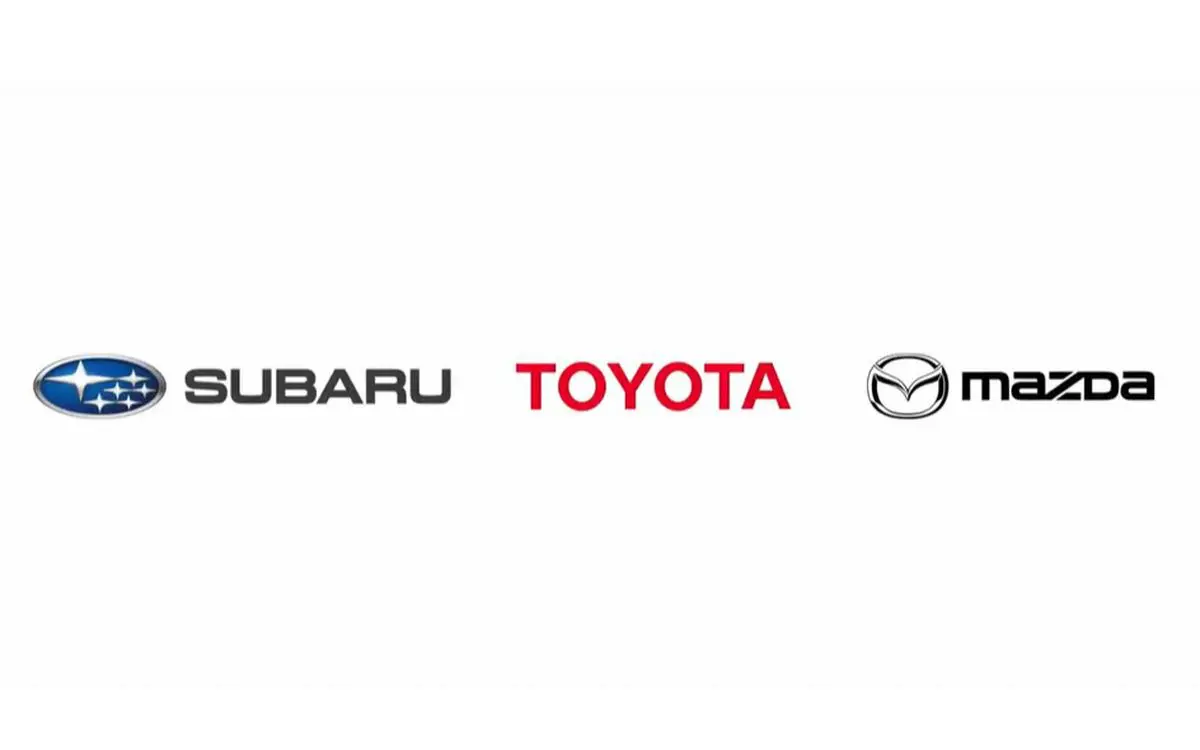
What is Euro 7, the European emission regulation?
Euro 7 is a new automobile emission regulation proposed by the European Commission. This regulation aims to reduce air pollution and environmental impact in Europe, and sets stricter standards than the previous Euro 6.
In November 2022, the European Commission proposed that Euro 7 be applied to passenger cars and light commercial vehicles from July 1, 2025, and to large vehicles from July 1, 2027. However, the introduction was postponed from the 2025 date proposed by the European Commission, and passenger cars and vans will now be introduced from January 2028. Furthermore, the view was expressed that NOx regulations for trucks should be relaxed more than proposed.
Toyota’s new Corolla Sport full model change powertrain
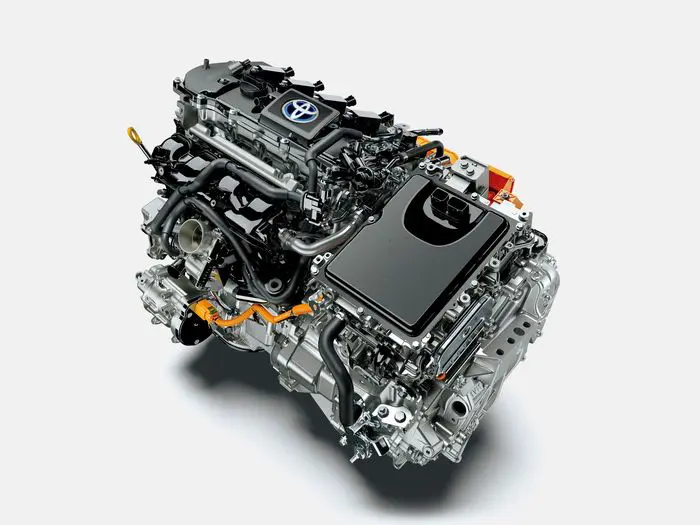
In-line 4-cylinder DOHC 1.8L engine “2ZR-FXE”
The Japanese model of the new Corolla Sport is expected to adopt the current fifth-generation hybrid system, which is a series-parallel hybrid with a reduction mechanism that combines an improved in-line 4-cylinder DOHC 1.8L engine “2ZR-FXE” with a motor.
There is also a possibility that the lineup will include a hybrid model equipped with the newly developed engine introduced above, as well as a hybrid model that combines a 1.5L 4-cylinder engine with a motor. Considering that the new Prius offers both 2.0L and 1.8L hybrid models, it is highly likely that these hybrid systems will be available as options for the Corolla Sport as well.
1.8L engine + motor hybrid
| Specifications | New Corolla Sport Hybrid |
|---|---|
| engine | Inline 4 DOHC 1.8L + motor ( series-parallel hybrid with reduction mechanism ) |
| Maximum power | 72kW (98hp) / 5,200rpm |
| Maximum torque | 142Nm (14.5kgm) / 3,600rpm |
| Front motor maximum output |
70kW (95PS) |
| Front motor maximum torque |
185Nm (18.9kgfm) |
| Rear motor maximum output |
30kW (41PS) |
| Rear motor maximum torque |
84Nm (8.6kgfm) |
| System Output | 103kW (140ps) |
| Drive system | 2WD E-Four (4WD) |
| transmission | Electric variable speed transmission |
| WLTC mode fuel economy | 27.3km/L ~ 29.5km/L (2WD) 24.9km/L ~ 27.8km/L (4WD) |
1.5L engine + motor hybrid
| Specifications | New Corolla Sport Hybrid |
|---|---|
| engine | Inline 4 DOHC 1.5L + motor ( series-parallel hybrid with reduction mechanism ) |
| Maximum power | -kW (-ps) / -rpm |
| Maximum torque | -Nm (-gm) / -rpm |
| Front motor maximum output |
-kW (95PS) |
| Front motor maximum torque |
-Nm (-kgfm) |
| Rear motor maximum output |
-kW (-PS) |
| Rear motor maximum torque |
-Nm (-kgfm) |
| System Output | -kW (-ps) |
| Drive system | 2WD E-Four (4WD) |
| transmission | Electric variable speed transmission |
| WLTC mode fuel economy | Approx. 31km/L (2WD) Approx. 28km/L (4WD) |
The 1.5L engine + motor has a higher system output, and also has many economic advantages, as the automobile tax in Japan is 36,000 yen for a 1.8L engine (over 1.5 liters and up to 2.0 liters) and 30,500 yen for a 1.5L engine (over 1 liter and up to 1.5 liters).

Toyota’s new Corolla Sport full model change price and grade
As for the price of the new Corolla Sport, it is certain that it will be more expensive than the current model due to changes in the powertrain, the adoption of the latest equipment, and rising prices.
2024 model price grade (reference)
| grade | engine | transmission |
Drive system |
Price (10%) |
|---|---|---|---|---|
| G “Z” | In-line 4-cylinder 2.0L direct injection engine “Dynamic Force Engine” |
CVT | 2WD | 2,728,100 yen |
| G | 2,476,500 yen | |||
| G“X” | 2,210,000 yen |
| grade | engine | transmission |
Drive system |
Price (10%) |
|---|---|---|---|---|
| HYBRID G “Z” | In-line 4-cylinder 1.8L “2ZR-FXE” |
Electric variable speed transmission |
2WD | 2,978,100 yen |
| HYBRID G | 2,726,500 yen | |||
| HYBRID G “X” | 2,470,000 yen |
About the Corolla series
The Corolla series is Toyota’s flagship model and a true national car that has supported Japan’s motorization for over half a century. Its history began with the release of the first Corolla in 1966, and has evolved through 12 generations to the present day.
History of the Corolla Series
The first-generation Corolla was developed as a car that was well-balanced in every aspect, based on the concept of “80 points plus alpha.” Since then, it has continued to evolve with the times, always responding to user needs.
- First-generation Corolla (1966): With its affordable price and high reliability, it led the motorization of Japan.
- Second-generation Corolla (1970): Compliant with exhaust gas regulations, the car’s environmental performance was improved.
- Third-generation Corolla (1974): Affected by the oil crisis, this model placed emphasis on fuel efficiency.
- Fourth-generation Corolla (1979): The car adopted front-wheel drive (FF) and had more interior space.
- Fifth-generation Corolla (1983): Improved aerodynamics further improved fuel economy.
- 6th generation Corolla (1987): Improved luxury and comfort.
- Seventh-generation Corolla (1991): Safety features were improved, with airbags becoming standard equipment.
- 8th generation Corolla (1995): Further improved environmental friendliness and equipped with a fuel-efficient engine.
- 9th generation Corolla (2000): It became a global model and was sold worldwide.
- 10th generation Corolla (2006): The design was completely redesigned to emphasize a sporty image.
- 11th generation Corolla (2012): A hybrid model was added, significantly improving fuel economy.
- 12th generation Corolla (2019): Adopts the TNGA platform, improving driving performance and safety.
The appeal of the current Corolla series
The current Corolla series combines a sporty design, comfortable ride, and advanced safety technology. There are five body types to choose from: the sedan “Corolla”, the touring (wagon) “Corolla Touring”, the hatchback “Corolla Sport”, and the SUV “Corolla Cross” and sports “GR Corolla” added in 2021, allowing you to choose the one that best suits your lifestyle. The change in body size from 5 numbers to 3 numbers has made it a more attractive model.
- Corolla Sedan: Featuring a sophisticated design and spacious interior, it is suitable for a wide range of uses, from everyday use to long-distance driving.
- Corolla Touring: A wagon type with excellent utility, perfect for an active lifestyle.
- Corolla Sport: With its sporty driving and stylish design, it’s a pleasure to drive.
- Corolla Cross : A versatile SUV that embodies “just right,” making it fun to drive around town and in the great outdoors.
- GR Corolla: Sporty driving and stylish design make it the ultimate hot hatch.
A word from the editorial department
Through this full model change, the new Corolla Sport will be an extremely attractive model that combines a sporty design, comfortable interior space, the latest safety technology, and excellent environmental performance.
This full model change is expected to introduce a new engine and comply with the strict Euro 7 emission regulations. As a pioneer, the Corolla, which recorded sales of over 1 million units worldwide in 2023, is the perfect model for Toyota. The Corolla is the second most popular car model in the world, and is a suitable car to introduce new technology. Also, by completely revamping its image with this full model change, Toyota may be aiming to surpass Tesla’s Model Y, which was the best-selling car in 2023. I can’t wait for its release in 2026.
We will keep you updated as new information becomes available.
Corolla Sports related articles
